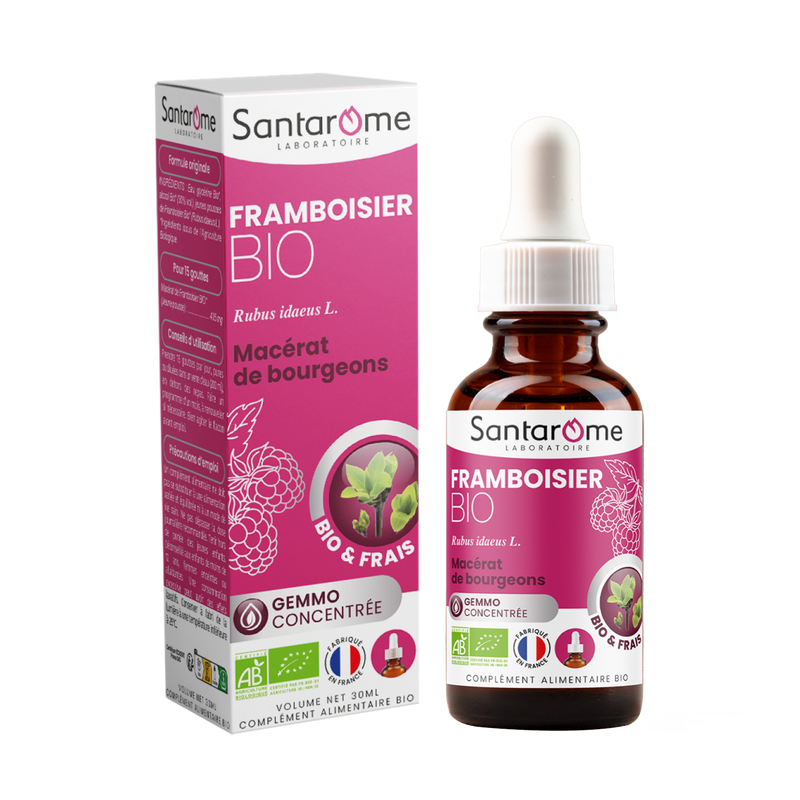What is premenstrual syndrome?
Written on February 13, 2025, by Pauline de Santarome
Every month, women's menstrual cycles begin again. And for some, periods can be more painful than others. In fact, a large proportion of women suffer from premenstrual syndrome, and 5% of them have a severe form called premenstrual dysphoric disorder.
Premenstrual syndrome (PMS) refers to symptoms that begin before a woman's period. We explain everything in this article!
What is SPM?
PMS is a disorder that recurs before each menstrual cycle and causes symptoms such as anxiety, emotional imbalance, and periods of depression that last for 7 to 10 days. Although these symptoms are generally not serious, they are nonetheless painful and unpleasant.
PMS begins 5 to 11 days before the start of menstruation and usually disappears after the first day or days of menstruation. The difference lies in the fact that every body is different and therefore every woman's hormonal balance is different.
Premenstrual syndrome affects women of all ages, which is why it is necessary to address this issue.
Symptoms of PMS
Several symptoms may appear and complicate the daily lives of women with PMS. These symptoms can vary from one woman to another. They include:
- Fatigue
- Increased sensitivity
- Swelling
- Headaches
- Insomnia
- Or in the opposite direction of long sleeps
- Concentration problems
- Constipation issues
- Nausea and dizziness
- Headaches, back pain, breast pain, or stomach pain
- Digestive problems: bloating
- Skin problems: dermatoses, acne
Stress and anxiety can particularly exacerbate the effects.

The causes of PMS
Several causes may be responsible for PMS. The most common causes are:
Hormonal causes: hypoglycemia, changes in estrogen levels
A genetic predisposition.
A serotonin deficiency: serotonin is a hormone that acts as a neurotransmitter between neurons.
Magnesium and calcium deficiencies.
The consequences of PMS
As we mentioned earlier, premenstrual syndrome does not have any serious consequences, but it does have some effects that can interfere with your daily life.
It can cause edema and weight gain due to water retention. Tender and painful breasts can also be a consequence of PMS.
Other unpleasant symptoms such as stomach and back pain can have a significant impact. PMS can also affect a woman's appetite.
In addition, PMS symptoms can worsen preexisting conditions.
Differences from pregnancy symptoms
Dizziness, nausea, vomiting... it is true that premenstrual syndrome and pregnancy have similar symptoms.
However, it is possible to differentiate between them. With PMS, pain and cramps usually last for 24 to 48 hours before your period starts. On the other hand, cramps can last for several weeks without you even having a period when you are pregnant.
From a dietary perspective, it is also possible to distinguish between premenstrual syndrome and pregnancy. With PMS, you may experience food cravings before your period arrives, whereas during pregnancy, you will crave specific foods that are related to pregnancy.
Finally, a simple and effective way to find out if you are pregnant or suffering from PMS is to take a pregnancy test. There is no surer way to tell the difference between the two.
Impact on sexual desire
Premenstrual syndrome also has an impact on your sexuality! Yes, it can sometimes put your sex life on hold, which can be a hindrance to your married life. The symptoms associated with PMS can dampen women's sexual desire. PMS limits your sex life because during this period, women feel vulnerable and tired. Sometimes, all they want to do is come home from work and sleep.
Solutions for combating PMS
While there is still no magic cure for PMS, there are some good solutions for reducing or stopping its effects.
Avoid going out and doing tiring household chores as much as possible. Instead, engage in physical activities that help you relax, such as yoga or swimming. Don't hesitate to rest as soon as you feel tired.
Reduce your caffeine and sugar intake, as well as tobacco consumption if you smoke. It is particularly advisable to reduce your alcohol consumption and opt for light, low-salt meals. Eat foods rich in fiber and calcium, and avoid foods that are too fatty.
If these simple tips are unfortunately not enough to relieve your pain, Santarome offers raspberry bud macerates. This dietary supplement highlights the benefits of raspberry for women's well-being, particularly during menstruation. Traditionally known as the "woman's bud," raspberry, in the form of organic bud macerate, is renowned for helping to regulate female hormonal balance.
It is used to relieve menstrual pain, cycle disorders, andmenopause-related discomfort. Its properties are thought to act on the hormonal system by promoting the production of estrogen and progesterone when necessary, and it is believed to have an antispasmodic effect that could help relax the uterine muscles and thus reduce menstrual cramps.















